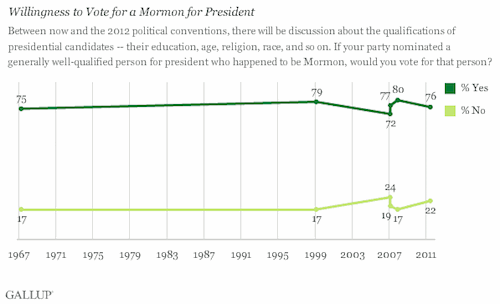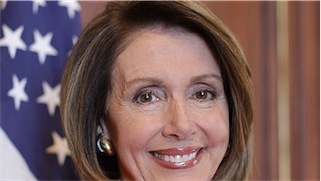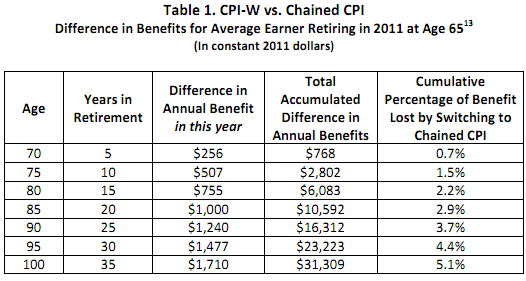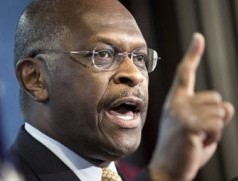Matthew Yglesias's Blog, page 2262
June 26, 2011
Twenty-Two Percent Of Americans Say They Wouldn't Vote For A Well-Qualified Mormon Presidential Candidate
Gallup poll has some bad news for Mitt Romney:
Though the vast majority of Americans say they would vote for their party's nominee for president in 2012 if that person happens to be a Mormon, 22% say they would not, a figure largely unchanged since 1967.

There's some reason to think that these numbers would move if Romney became the GOP nominee. Gallup adduces evidence from the 1960 campaign to show that anti-Catholic bias declined rapidly over the course of JFK running for president. And as you can see, back when it looked like Romney might win in 2008 people seemed to suddenly become more Mormon friendly. But this is hardly the only research indicating that a substantial swathe of voters doesn't like Mormons. They're better off than atheists (poor us) but it's not ideal from an electability standpoint.
Of course one issue here is identity-motivated voting is a two-way street. JFK not only lost votes to Nixon from anti-Catholic voters, he presumably benefitted from enthusiasm for his candidacy from Catholics. Barack Obama probably lost votes in 2008 to anti-black prejudice, but also secured 95% of the African-American vote and boosted black turnout. Romney could, similarly, plausibly benefit from larger-than-normal performance among Mormon voters. That's not a large demographic nationally speaking, but could be important in Nevada.


Tomorrow's Radiation Heaters Today
Via James Fallows, a great exhibit from the French National Library of prints from 1910 depicting the utopian lifestyle of 2000. A lot of them involve weird air travel, but my favorite is this idea of using dangerous nuclear isotopes to replace your fireplace ("chauffage au radium"):

It's particularly interesting when you consider that France is, in fact, the world leader in the use of nuclear energy.


Section 8 Housing Vouchers Spreading To Suburbia
Stephanie McCrummen's report on people in unlikely places taking on Section 8 tenants mostly puts it in the context of the nationwide housing slump, but I'd say a relative shift in preferences about neighborhood locations is also a big part of the story:
It was clear that Liza Jackson's luck had changed when she drove her pearl-white Dodge sedan, the one with the huge pink plastic eyelashes over the headlights, into Pinebrook, an eight-year-old subdivision where residents tend to notice cars with huge pink eyelashes.
"There goes the neighborhood," one homeowner said when she heard that her potential new neighbor had a federal housing voucher known as a Section 8. [...] From Jackson's point of view, the dismal housing market appeared as a glorious reversal of fortune: Fresh swaths of suburbia were opening up to the very people it has so often excluded.
I think this is an undersold point. There are two things that are bad about declining home sale prices. One is that the decline is associated with a decline in construction activity and construction employment. But over the long term, if the population rises the construction industry will exist. The other is that the decline has left many households unsustainably indebted. If you borrow $200,000 to buy what turns out to be only $100,000 worth of house, you have a real problem on your hands. But I think the right way to think of this problem is as a problem of debt—the price was too high in the past—rather than as a problem of current home values. In principle, an equilibrium where homes are cheap is preferable to ones where they're expensive. Cheap homes mean that women like Liza Jackson can acquire higher living standards. And cheap homes mean that you wouldn't need to take out giant loans to buy them in the first place, so the issue of debt-overhang would be moot.


Your DVR Sucks Power
People generally have a very poor sense of what household items do and do not account for a large share of their energy usage. I'm no exception and never would have guessed that "One high-definition DVR and one high-definition cable box use an average of 446 kilowatt hours a year, about 10 percent more than a 21-cubic-foot energy-efficient refrigerator, a recent study found."


Forgot About Nancy

Rep. George Miller (D-Calif.), a close confidant of Pelosi's, acknowledged the tensions between the White House and House Democrats. "Not great. Not great," Miller said. "Listen, this is a rough and tumble world, but I think their relationship with the caucus has not been good."
But while Pelosi has been largely absent from the ongoing negotiations over lifting the debt ceiling, she may yet have a role to play, as it becomes clearer how difficult it will be to bring around enough Republican votes to pass it.
In other words, to the extent that House rightwingers don't want to vote 'yes' on a debt ceiling bill the House Democratic minority becomes relevant again. Their votes may be needed to pass something, and the membership there is generally well to the left of where the White House has positioned itself. Among other things, it's an additional roadblock to getting a deal done.


What A Difference Political Institutions Make
Nate Silver writes of the marriage equality issue that "the type of leadership that Mr. Cuomo exercised — setting a lofty goal, refusing to take no for an answer and using every tool at his disposal to achieve it — is reminiscent of the stories sometimes told about with President Lyndon B. Johnson, who had perhaps the most impressive record of legislative accomplishment of any recent president." He notes that this is very much "a brand of leadership that many Democrats I speak with feel is lacking in President Obama."
This is all true. Still, I would say that the bigger difference isn't so much about the leadership style as it is that Cuomo won. Suppose that the New York State Senate operated according to the rules of the United States Senate and a bill failed unless it secured a 60 percent supermajority. What would people be saying about Andrew Cuomo now? Well, it seems to me that many people would be castigating his failed leadership. Instead of Michael Barbaro's account of his behind-the-scenes leadership reading like a virtuouso performance it would be reading like a story of a failed inside game. The meeting with high-dollar pro-equality Republican donors would seem not savvy, but naive and weak. Conversely, if the US Senate operated on a 50 vote rule, then both the Affordable Care Act and the Dodd-Frank bill would have gone further in advancing progressive priorities, there would have been more economic stimulus in the 111th Congress, the DREAM Act would have passed, and it's conceivable that some kind of nationwide carbon pricing scheme would be in place.
Which is just to say that political institutions matter, a lot. Getting concurrent majorities in two legislative houses, as Cuomo did, is very hard. Getting a 60 percent supermajority is harder.


June 25, 2011
Implications Of Chained CPI For The Very Elderly
As long as the idea of switching to the use of the Chained CPI is in the news it's worth emphasizing that though the scale of the cut to Social Security benefits implied by doing this is very small, it falls quite heavily on people who are very old since it compounds over time. Social Security Works has a table (PDF):

CAP's Social Security proposal pairs a switch to Chained CPI with more generous benefits for the poorest retirees and with more generous benefits for the very elderly. On net, our proposal would reduce poverty among senior citizens. But if you simply do the C-CPI-U switch without changing anything else, you end up making Social Security's adequacy problem worse.


The Investment Gap
From the General Theory of Money, Interest, and Employment:
Moreover the richer the community, the wider will tend to be the gap between its actual and its potential production; and therefore the more obvious and outrageous the defects of the economic system. For a poor community will be prone to consume by far the greater part of its output, so that a very modest measure of investment will be sufficient to provide full employment; whereas a wealthy community will have to discover much ampler opportunities for investment if the saving propensities of its wealthier members are to be compatible with the employment of its poorer members. If in a potentially wealthy community the inducement to invest is weak, then, in spite of its potential wealth, the working of the principle of effective demand will compel it to reduce its actual output, until, in spite of its potential wealth, it has become so poor that its surplus over its consumption is sufficiently diminished to correspond to the weakness of the inducement to invest.
This is roughly speaking what I think is going to be our path out of the slump. Stay in a little depression long enough, and eventually the surplus of people over homes gets to the point where residential investment has to make a comeback. But it's an unnecessarily long, unnecessarily hard slog.
What's more, the thing Keynes didn't foresee is that advanced wealthy societies would eventually adopt a dazzling array of measures that make it exceedingly difficult to conduct public sector infrastructure programs quickly. The government regulates itself (via contracting rules, environmental review, community input, grant formulaes, etc.) to a staggering degree.


Herman Cain Wants To Improve Regulation By Turning Regulatory Authority Over To The Regulated

I always think of my friend Will Wilkinson as a bloodless technocrat's bloodless technocrat, but he lives in Iowa so he's trying his hand at campaign reporting and he turns out to be damn good at it, combining excellent prose with what I would say is a case study in the idea that perhaps more campaign reporting should be done by people with less of a politics focus:
Toward the end of the Q&A session, Cain suggests speeding domestic oil and gas production by creating a "regulatory reduction commission" that will ease regulatory control. In particular, Cain would seek the advice of energy executives whose firms' efforts have been hindered by environmental regulation. "If you've been abused by the EPA like Shell Oil, I'm going to ask the CEO of Shell Oil would he like to be on this commission, and give me some recommendations. The people closest to the problem are the ones who can solve the problem." It does not seem to occur to Cain that regulatory policy might not be improved in the public's interest by amplifying the influence of those it is meant to regulate.
Exactly. Conservatives are, clearly, correct to think that poorly done regulation can be a problem for the country. But the knee-jerk impulse to say that we'll make it better by handing more authority over to powerful incumbents is. odd.


The Surprising Road To Equality

I grew up in the Village in New York, so to me LGBT equality has always been a given, including on the marriage issue as it arose in the 1990s. But if you asked me ten years ago, I would have been very surprised at the direction the road to equality has taken. I was fairly certain, at the time, that we were heading in the opposite direction. That people would say that, on the one hand, most large religious denominations objected to the idea of same sex marriage. But people would say that on the other hand it's not fair for people to live in a state of permanent second-class citizenship. So since a wedding is, at root, a kind of religious ceremony we would achieve equality through the disestablishment of marriage. People, gay or straight, would form registered legal partnerships of some kind ("civil unions") and the question of who is and isn't married would be left to various religious denominations.
The upshot would be that secular people generally wouldn't get married. Once upon a time, after all, the religious function of baptism was closely tied to the secular function of legally registering new births. But that's not the way things work anymore. There's a perfectly egalitarian secular system of birth certificates, and operating in paralel you have some different religious ceremonies to mark new births for those who are interested.
Obviously, I'm totally wrong. Marriage equality came to New York last night and the whole country is on the road. Meanwhile, my best friend from high school got married earlier this summer, I'm going to a wedding later today, and I've got several more weddings on the agenda for 2011. It's inspiring to see these victories for justice and equality, but I also do think it's worth pausing to acknowledge that the specific form the victory has taken is an interesting affirmation of the conservative streak running through American life. LGBT rights advocates and their allies really haven't wanted to tear down traditional family structures, they've patiently, insistently, and effectively demanded access to them.


Matthew Yglesias's Blog
- Matthew Yglesias's profile
- 72 followers



